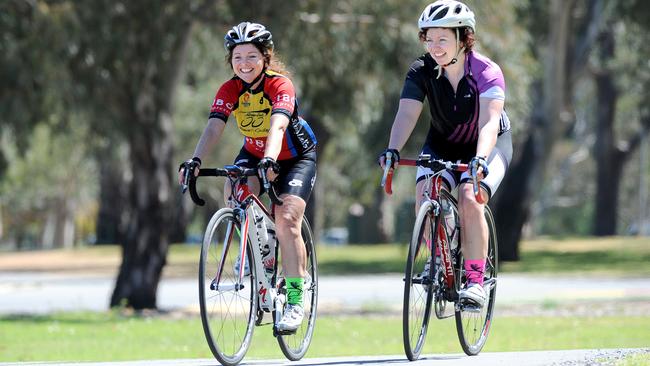Greg Barila: If the government is forced to back-pedal on new bike laws it exposes major flaws in its citizens’ jury model
IF the State Government is forced to back-pedal on its new bike laws it will expose major flaws in Labor’s Citizen’s Jury, writes Greg Barila

Opinion
Don't miss out on the headlines from Opinion. Followed categories will be added to My News.
- Daniel Wills - Citizens’ jury - clever politics or a cop-out?
- Citizens’ Jury to make recommendations on nuclear dump plan
GETTING from point A to point B on our roads these days has become a total nightmare, and yet Adelaide remains the 20-minute city.
That’s because it’s not possible to go 20 minutes in Adelaide without somebody bleating about something. Right now we’ve got our Lycra in a twist about riding on footpaths.
In January, the State Government’s new cycling laws were being heralded as a welcome détente between Adelaide’s two warring armies; those in cars and those with handlebars.
The laws would keep drivers and cyclists at a safe distance. There would be Peace In Our Time.
But just six months later, the ceasefire has been broken and once again our cyclists are at war, this time not with motorists but with the foot soldiers in the land army that protects our sovereign footpaths — pedestrians.
In recent weeks, we’ve heard harrowing reports from pedestrians being mowed down on footpaths by kamikaze cyclists, including one skirmish that left a woman with a fractured rib and internal bleeding.
These nasty and unfortunate incidents have prompted a typical display of hand-wringing, particularly among local councillors, who are already looking for ways to nobble or even totally undo State laws which are less than a year old.
Last month, Salisbury councillor Brad Vermeer asked staff to investigate a by-law that would force cyclists to ride at a “walking pace” on footpaths to ensure pedestrians didn’t keep getting bowled over like ten pins.
He hinted that councils were now being forced to act to clean up the State Government’s mess, as far as this issue.
“The State Government this year instituted the ability for cyclists to ride on the footpath without essentially any consultation and now local government has to deal with it,” Cr Vermeer said.
But if riding on footpaths is a dumb idea then whose dumb idea was it?
Oh, that’s right. It was YOUR dumb idea, remember?
Riding on footpaths was one of several recommendations by a Citizens’ Jury, set up by the State Government to promote public participation in government decision-making and to replace the old “announce and defend” approach of the Rann Government with a fresh new plan to “debate and decide”.
In a column last year, I wrote, somewhat cynically, about how the Citizens’ Jury, while well-intentioned, was essentially a shrewd strategy by Labor to create the illusion it was getting the job done and bringing voters along for the ride.
There was only upside for the government because the issues being entrusted to the jury, a panel of 37 “ordinary” South Australians — time zones, libraries, waste management, aged care — were either boring or benign. The government could take credit for the bright ideas, while quietly shelving the difficult or silly ones.
My own view, for what it’s worth, is that short of investing tens of millions of dollars in safe and proper bike lanes across the city, riding on footpaths is a good and smart alternative that will probably save lives.
But if the government is forced to back-pedal, at least on aspects of its new bike laws, it will expose major flaws in the ‘Citizens’ Jury’ model, particularly if major stakeholders like local councils feel they weren’t properly consulted — and it appears some do.
Now, the Premier is looking to put a Citzens’ Jury to work on critical issues, like the nuclear waste dump, despite having already spent millions of dollars of taxpayers’ money on a Royal Commission, which remains unclear on fundamental issues, like whether nuclear power nations would even use waste storage facility in South Australia.
Involving ordinary people in policy making is well and good but it should be no substitute for strong political leadership that is prepared to articulate a bold vision and show confidence enough to start making some tough decisions.
Because South Australians already get a say in the future direction of their state at the ballot box every four years and that’s the only Citizens’ Jury that matters.


